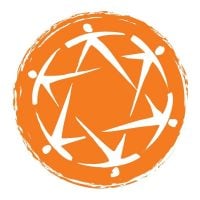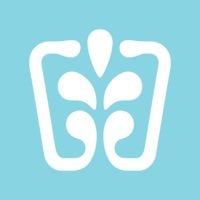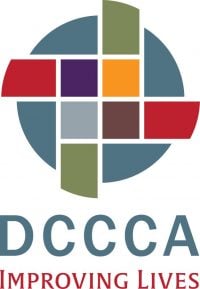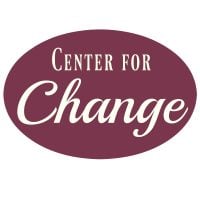Jewish Family Services
Drug Rehab Center in Shawnee Mission, Kansas
Jewish Family Services in Shawnee Mission, Kansas offers a variety of addiction and substance abuse services, including inpatient and outpatient treatment, recovery coaching, and support groups, all aimed at promoting wellbeing and improving lives.
About Jewish Family Services in Kansas
Jewish Family Services in Shawnee Mission, Kansas is an organization dedicated to providing an array of compassionate services designed to help individuals, families, and communities in need. The non-profit organization offers a wide range of programs to address physical, emotional, financial, and social challenges in an effort to promote wellbeing and improve lives. Their addiction and substance abuse services include offering resources and support for those in recovery, providing education to decrease the stigma of addiction, and engaging in advocacy to increase the availability of effective addiction treatment.
Jewish Family Services offers holistic inpatient and outpatient treatment for drug and alcohol addiction. Inpatient programs provide a structured and supervised environment to help individuals achieve sobriety, while outpatient programs provide flexible treatment that allows individuals to receive care while also maintaining work and other obligations. Additionally, the organization offers recovery coaching, relapse prevention plans, vocational services, and support groups to assist individuals in their journey to recovery.
Jewish Family Services is accredited by the Joint Commission, an independent organization that evaluates health care organizations. They also have both state and federal funding, which allows them to provide services to even more individuals in need of addiction treatment. Additionally, they have received awards recognizing their work and achievements in behavioral health, including the Excellence in Mental Health Award from the National Council for Behavioral Health.
Genders
Ages
Modality
Additional
Conditions and Issues Treated
Levels of Care Offered
This center offers a variety of custom treatment tailored to individual recovery. Currently available are Outpatient, with additional therapies available as listed below.
Alcohol or drug addiction, or co-occurring disorders, are treated in an outpatient program. The patient must attend therapy and other programs at the facility but can return home each night.
Outpatient treatment allows recovering addicts to live at home while receiving addiction treatment. Outpatients can attend group sessions for a few hours per week. Outpatients may also continue to work full time and study/attend school without interruption if they choose.
Therapies & Programs
Different people react differently to various treatment options. Some drug rehabilitation centers offer individualized treatment that caters to the specific needs of a drug addict. The best treatment option varies on an individual depending on the type of drug abused, life history, medical condition of the person, social circumstances, and the environment they live in now.
When a person enters drug rehab, they usually have anti-drug associations such as withdrawal symptoms, stress, cravings, etc. The first step of drug rehab is to detoxify the body from any residual substances in it. Drug rehabilitation centers usually employ trained medical professionals to help in this process. Usually, the initial detoxification lasts for five days, where the person is monitored under close supervision.
Couples therapy is a treatment method used to help couples in which at least one member of the couple has a drug addiction. The treatment is designed to help the couple strengthen their relationship to minimize the effects of drug addiction on their lives and promote healthy communication between them.
Couples therapy can be used whether the addicted partner is using drugs or in recovery. It helps the couple create healthy communication and coping skills to minimize the problem-solving abilities of one partner, which can then be directed at solving issues related to their addiction. It also helps couples address problems that may be related to drug addiction. Couples therapy can help couples feel like a team and not feel like their partner is the problem.
Couples therapy is very challenging for both the drug addict and their partner. It requires an intense commitment between the two individuals to participate in the sessions and the homework assigned between sessions.
An additional benefit of couples therapy is that it can help make other types of treatment, such as 12-step programs, more effective.
Family therapy sessions typically involve the addict and their family members. During these sessions, a therapist will work with everyone involved to help them understand addiction and find healthy ways of coping without substance abuse.
Some addicts might feel embarrassed about their substance abuse problems. By encouraging family members to attend these sessions, therapists can show addicts that they’re not alone in dealing with addiction. Therapists can also work with family members to help them understand addiction and learn how to offer support and encouragement to their loved one as they deal with substance abuse issues.
Attending group therapy at Jewish Family Services in , is a useful way for those seeking sobriety to realize they aren’t the only one going through it.
This is when a group of people on different recovery phases get together and talk about what they’re going through, their triggers, successes, and failures. This can include alternative types of therapies too! Group therapy may occur on an outpatient or inpatient basis with groups that have no pre-existing relationships outside the session, unlike support groups where everyone already knows each other beforehand.
Trauma therapy is a form of therapy used to help people process and understand past traumas. This can help struggling addicts, as many people turn to drugs or alcohol to mask the pain of their past. Trauma therapy can be done in several ways, such as through visualization, discussion, and writing down thoughts and feelings. The goal is to help the individual understand why they are having problems coping with certain situations and changing how they think and react to things. This is often done in tandem with other therapies to treat the underlying issues associated with addiction.
The idea behind trauma therapy is that while some people can experience traumatic events and not have lasting psychiatric symptoms, many others will. In these cases, memories get hidden from consciousness but continue to influence how the person processes and copes with things in their life. They may avoid situations that resemble what happened or become suddenly angry or irritated to a situation that reminds them of a past event. With the help of a therapist, people can go back over memories and experiences. This helps them understand why they are having problems coping with certain situations and changing how they think and react to things.
Cognitive Behavioral Therapy is a type of psychotherapy that helps people address the thoughts and behaviors that may have led to their addiction. It also helps change negative thoughts into positive ones and promotes healthy communication between addicts and those around them. CBT is an efficient treatment for individuals suffering from all sorts of addictions.
Cognitive Behavioral Therapy (CBT) focuses on the underlying thoughts and behaviors that caused the problem of addiction in the first place and may cause a relapse. Negative feelings are common in drug abuse disorders, but they can lead to co-occurring disorders if not recognized. CBT involves strategies that help to change the behavior pattern by restructuring negative thoughts into positive ones. It helps to remove these feelings, and it provides long-term benefits. Also, CBT promotes self-awareness, self-control and can be administered as a mono-therapy or as part of combination therapy.
Patient Experience
Experiential Therapy at Jewish Family Services
Experiential therapy is a type of therapeutic approach that focuses on having patients work through problems, issues, or emotions by engaging directly in some real experience. It occurs face-to-face with a therapist who helps these people to explore their feelings first hand. The hope is that when this happens, the patient will feel driven to turn away from their destructive behavior and instead take up positive behaviors or coping mechanisms. Direct experience methods, role play, psychodrama, interpersonal and social learning are a few different forms of experiential therapy.
Payment Options Accepted
For specific insurance or payment methods please contact us.
Is your insurance accepted?
Ask an expert, call (888) 674-0062
Additional Details
Specifics, location, and helpful extra information.
Shawnee Mission, Kansas 66211 Phone Number(913) 327-8250 Meta DetailsUpdated November 25, 2023
Staff Verified
Jewish Family Services Patient Reviews
There are no reviews yet. Be the first one to write one.
Shawnee Mission, Kansas Addiction Information
About 42% of adults in Kansas have tried an illicit drug at some point in their lives. 12.4% of the state population uses illegal drugs and 4.5% abuse alcohol in a given year. 15.16% of all deaths in Kansas between 2008 and 2017 were caused by either drugs or alcohol.
Shawnee Mission, Kansas has a high rate of drug abuse and addiction. 1 in 5 Shawnee Mission teenagers has used drugs in the past month. Methamphetamine, heroin, cocaine, and marijuana are the most commonly used drugs. Alcohol is also a big problem. If you are looking for a treatment for yourself or your loved one, check the online directory for drug and alcohol rehab treatment centers in Shawnee Mission, Kansas.
Treatment in Nearby Cities
- Holton, KS (69.3 mi.)
- Shawnee, KS (8.0 mi.)
- Louisburg, KS (20.7 mi.)
- Seneca, KS (98.5 mi.)
- Winfield, KS (172.5 mi.)
Centers near Jewish Family Services
The facility name, logo and brand are the property and registered trademarks of Jewish Family Services, and are being used for identification and informational purposes only. Use of these names, logos and brands shall not imply endorsement. RehabNow.org is not affiliated with or sponsored by Jewish Family Services.









